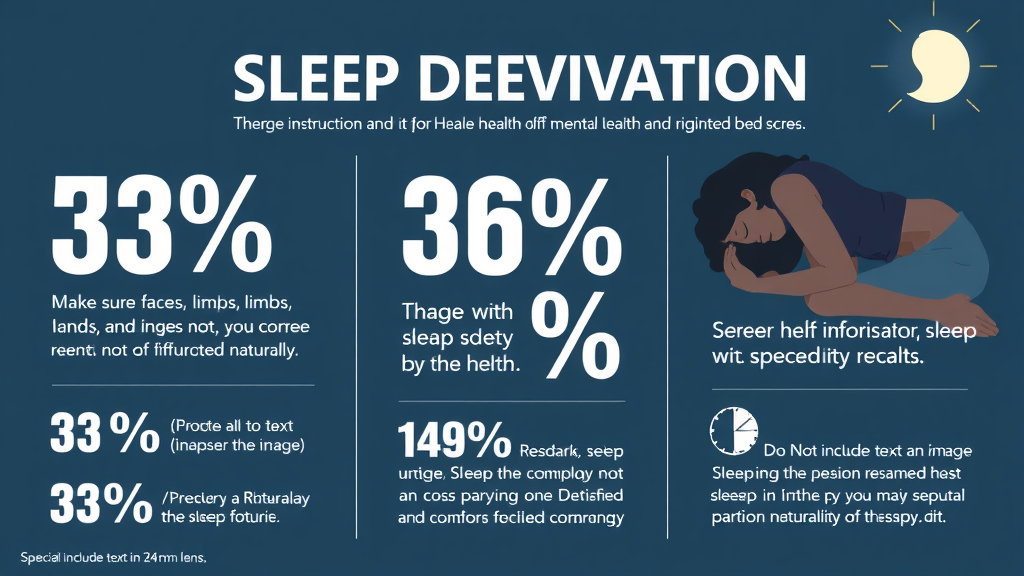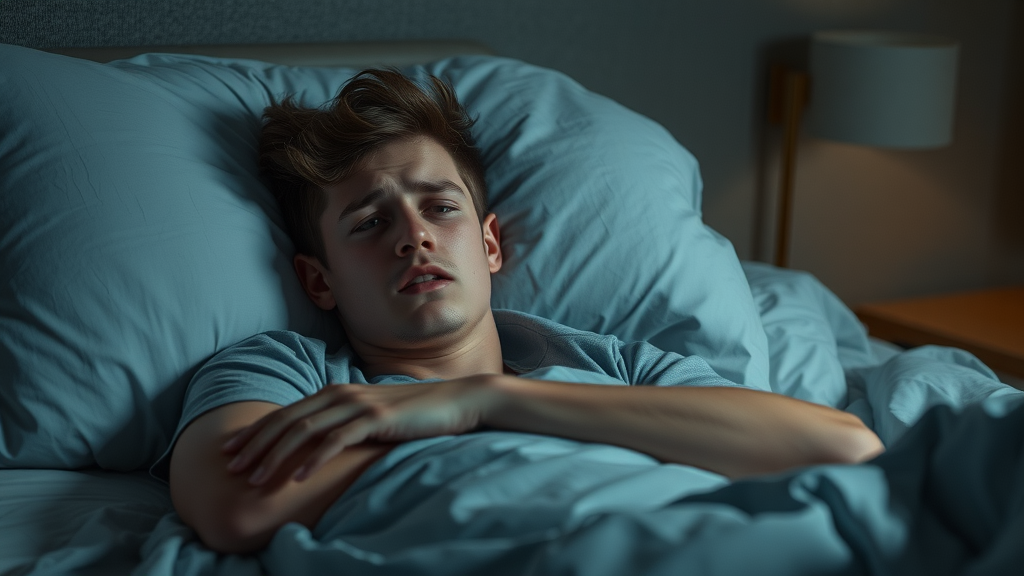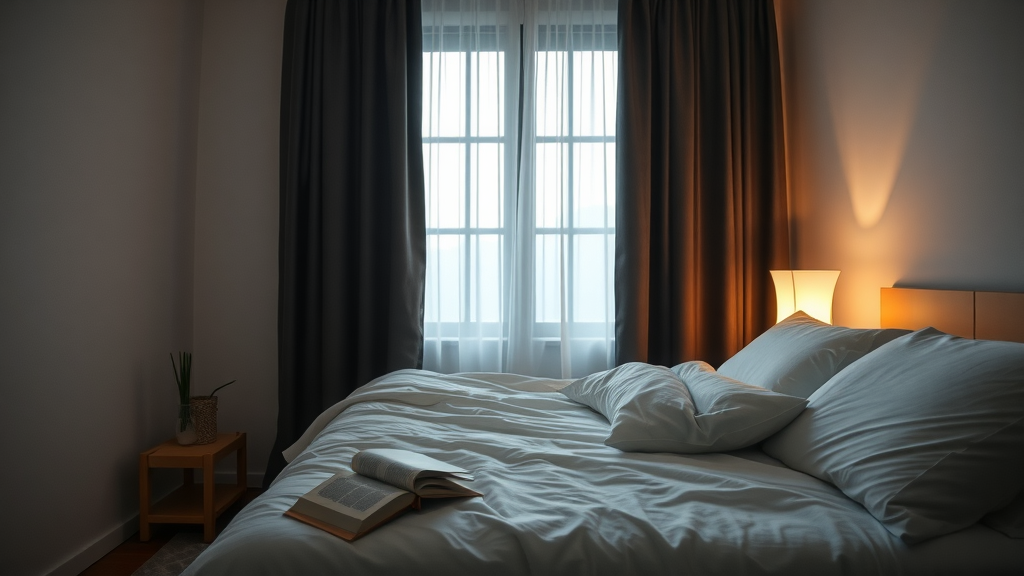Did you know that poor sleep quality doubles your risk of mental health disorders? This startling connection underlines just how critical sleep and mental health are to our overall wellbeing. Understanding and optimizing this relationship can profoundly improve emotional regulation, cognitive function, and physical health. Join us as we explore expert insights from Dr. Inez Bracy, a holistic health coach, on the transformative power of quality sleep and mindful living.
Startling Facts on Sleep and Mental Health

Impactful statistics illustrating the effects of sleep deprivation on mental health outcomes.
Scientific studies underscore that insufficient sleep not only exacerbates anxiety and depression but also impairs memory, concentration, mood stabilization and other mental health problems. A growing body of research reveals that chronic sleep deprivation disrupts the brain's ability to regulate emotions, contributing to a vicious cycle between poor sleep and mental health disorders.
Dr. Inez Bracy stresses the urgency of addressing sleep as part of mental health strategies. “When we neglect sleep, we're not just tired — we compromise the very foundation of our emotional resilience,” she notes. Understanding these statistics helps raise awareness about the interplay between rest and psychological wellness.
Understanding Sleep and Mental Health: Definitions and Connections
The Impact of Sleep Quality on Mental Health Outcomes
"Sleep quality is a foundational pillar for mental health, influencing emotional regulation and cognitive function," explains Dr. Inez Bracy, a health coach specializing in holistic wellness.
Quality sleep involves not just duration but also the restorative depth and continuity of rest. Poor sleep quality disrupts the brain's ability to process stress and trauma effectively, leading to increased vulnerability to mental illnesses such as depression, anxiety, and PTSD.
Sleep and mental health share a bidirectional relationship: mental health conditions can impair sleeping patterns, while poor sleep exacerbates the symptoms of these conditions. Dr. Bracy emphasizes that improving sleep hygiene is paramount in breaking this detrimental cycle. A consistent bedtime, removal of disruptive blue light, and a peaceful sleep environment contribute substantially to mental clarity and emotional stability.
Common Sleep Problems and Their Mental Health Implications

Serene sleep environment promoting better quality of sleep and mental wellbeing.
Common sleep disorders such as insomnia, restless leg syndrome, and sleep apnea can drastically impair mental health. Insomnia, in particular, is strongly linked with anxiety and depression, making early diagnosis and intervention critical. Sleep apnea interrupts breathing patterns leading to fragmented sleep and daytime fatigue, further exacerbating psychological distress.
Dr. Bracy recommends a holistic approach to tackling these issues, combining behavioral adjustments and clinical support where necessary. Recognizing symptoms early and addressing causes can significantly improve both sleep and mental health outcomes over time.
Health Outcomes Associated with Sleep and Mental Health
Physical Health and Mental Health Interactions
Dr. Inez Bracy of Inez Bracy Health Coaching notes, "Improving sleep not only enhances mental clarity but also supports physical health, creating a positive feedback loop for overall wellness."
The connection between physical health and mental well-being is inseparable, with sleep acting as a vital mediator. Poor sleep weakens immune function, increases inflammation, and raises the risk of cardiovascular disease—all of which negatively impact mental health. Conversely, robust physical health fosters better sleep quality, creating a reinforcing cycle of wellness.

Sleep difficulties often signal underlying mental health stress and physical discomfort.
Dr. Bracy recommends holistic strategies that address physical activity, nutritious diet, and relaxation techniques in combination with improving sleep hygiene. This comprehensive perspective ensures sustainable mental and physical health benefits.
Strategies to Improve Sleep and Mental Health
Behavioral and Cognitive Approaches

Journaling as part of a cognitive-behavioral approach to enhancing sleep quality.
Behavioral therapies, particularly Cognitive Behavioral Therapy for Insomnia (CBT-I), have shown impressive efficacy in treating chronic sleep disturbances linked with mental health issues. These approaches help individuals identify harmful sleep habits and replace them with positive routines and thought patterns aligned with restorative sleep.
Dr. Bracy emphasizes the importance of mindful reflection and journaling to calm the mind and process daily stresses before bedtime. Techniques like stimulus control, relaxation exercises, and sleep restriction therapy empower individuals to regain control of their sleep cycles and support their mental wellness.
Lifestyle Changes to Enhance Sleep Quality

Creating a sleep-friendly environment with blackout curtains and soothing ambiance.
Simple lifestyle changes can dramatically enhance sleep quality and, by extension, mental health. Maintaining a consistent sleep schedule, avoiding caffeine and heavy meals before bedtime, reducing screen exposure, and creating a peaceful bedroom environment are foundational steps.
Dr. Bracy’s own nightly routine includes a 9 PM bedtime, blackout curtains to minimize light disruptions, and removing blue light exposures to promote melatonin production. These practices culminate in improved sleep latency and deeper rest cycles.
Mindfulness and Its Role in Sleep and Mental Health

Daily mindfulness meditation supports mental calmness and better sleep patterns.
Mindfulness meditation has gained prominence as a non-pharmacological approach to improving sleep and mental health. By cultivating present-moment awareness, individuals reduce anxiety and rumination, common culprits of sleep disruption.
Dr. Bracy endorses mindfulness practices as part of a comprehensive wellness routine. Regular meditation and mindful breathing foster emotional regulation and physiological relaxation, preparing the body and mind for restorative sleep.
Mindful Eating and Sleep

Nutritious evening snacks like bananas and herbal teas support sleep quality.
Nutrition plays a subtle but important role in sleep and mental health. Eating lightly and choosing sleep-promoting foods—rich in magnesium, potassium, and tryptophan—can improve sleep onset and depth. Mindful eating encourages tuning into hunger and fullness cues, reducing late-night overeating and digestive discomfort that impair sleep.
Dr. Bracy advocates for balanced, hydration-rich diets with a colorful variety of fruits and vegetables to support the “trifecta” of nutrition, exercise, and sleep as a unified approach to mental wellness.
Common Misconceptions About relationship between sleep and Mental Health
Many myths about sleep hinder effective habits. A common misconception is that sleeping less is harmless if compensated by naps or weekends off. In reality, chronic insufficient sleep disrupts brain chemistry regardless of later catch-up naps.
Another myth suggests that medication is always necessary to fix sleep issues. While sometimes appropriate, behavioral and lifestyle interventions often yield better long-term outcomes without the risks of dependency.
Understanding the facts empowers individuals to prioritize healthy sleep practices and dispel inaccurate beliefs that may delay wellness.
People Also Ask
How does sleep impact your mental health?
Sleep profoundly influences brain functions related to mood, memory, and stress management. Lack of sleep increases the risk of depression and anxiety, while adequate rest enhances emotional resilience and cognitive clarity.
What are the side effects of not getting enough sleep?
Chronic sleep deprivation can lead to impaired concentration, irritability, weakened immunity, increased inflammation, and heightened risk for mental disorders such as depression and anxiety.
Which mental health causes difficulty sleeping?
Mental health conditions like anxiety, depression, PTSD, and bipolar disorder often feature disrupted sleep patterns including insomnia or hypersomnia.
How many hours of sleep for good mental health?
Most adults need 7-9 hours of quality sleep nightly to support optimal mental health and overall wellbeing.
Key Takeaways: Enhancing Sleep to Support Mental Health
Sleep and mental health are deeply interconnected and influence each other bidirectionally.
Improving sleep quality can significantly enhance mental health outcomes and physical wellbeing.
Behavioral therapies like CBT-I are effective in treating sleep problems linked to mental health disorders.
Lifestyle modifications including sleep hygiene, mindfulness, and nutrition play a crucial role.
Consistent sleep schedules and reducing blue light exposure improve sleep quality and mental clarity.
Conclusion: Prioritizing Sleep for Holistic Mental Health
As Dr. Inez Bracy emphasizes, "Quality sleep is not a luxury but a necessity for mental and physical health. Prioritize it to unlock your full potential."
Embracing sleep as a foundational aspect of mental health is vital in today’s fast-paced world. By adopting mindful, gradual lifestyle changes focused on improving sleep quality, individuals can experience profound benefits to emotional regulation, cognitive performance, and physical vitality. Dr. Bracy’s holistic approach serves as a guide for nurturing total wellness through rest, nutrition, and mindfulness.
Call to Action
Inspired to improve your sleep and mental health ? Start today by implementing one small sleep-friendly habit—like dimming lights an hour before bed or journaling your thoughts. For comprehensive guidance, explore Dr. Inez Bracy’s book "Rejuvenate Your Life" available on Amazon. Connect with her on social media to learn more and join a community devoted to holistic wellness.
Stay Connected and Rejuvenate Your Life
Follow Dr. Inez Bracy on social media for ongoing inspiration and expert tips:
Facebook: Inez Bracy on Facebook
Instagram: @inezbracy (if available)
Purchase her empowering book, "Rejuvenate Your Life," on Amazon by searching the title and her name. Begin your journey towards greater health, vitality, and personal growth today with Dr. Bracy's expert insights and compassionate guidance.
 Add Row
Add Row  Add
Add 



Write A Comment